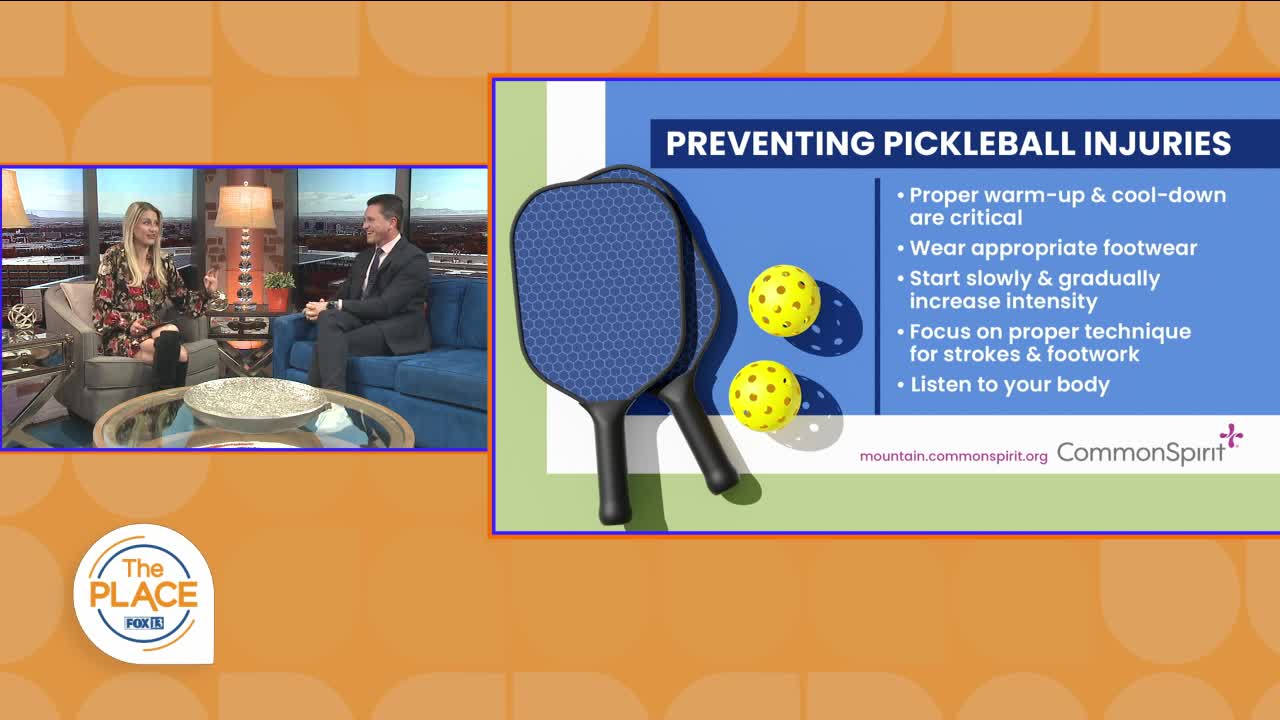Pickleball has become an incredibly popular sport in the past few years, and Utah is pickleball hotspot, and we are home to some of the top players in the country.
But this seemingly gentle sport is producing its fair share of injuries.
Dr. Tyler Kent, an orthopedic surgeon at CommonSpirit's Holy Cross Hospital – Davis in Layton, joined us with the common injuries he's treating and ways you can try to prevent them.
Dr. Kent says even though pickleball seems like a lower-impact sport, it involves quick bursts of movement, sudden stops, and rapid changes in direction on hard court surfaces, which but stress on joints and tendons.
Many older adults play pickleball and they may have decreased muscle strength, reduced flexibility, balance issues, or underlying conditions like osteoporosis, making them more susceptible to falls and fractures.
Dr, Kent says, "We're seeing a wide range of injuries, but some are definitely more prevalent."
He says overuse injuries like pickleball elbow, ankle strains and knee injuries are all common.
In addition, Dr. Kent says they're also seeing a significant number of fractures, particularly wrist and forearm fractures.
He offered some tips to help people prevent pickleball injuries:
● First, proper warm-up and cool-down are crucial.
● Second, appropriate footwear is essential. Court shoes with good lateral support are vital to prevent ankle sprains; running shoes aren't designed for the side-to-side movements of pickleball.
● Third, start slowly and gradually increase intensity.
● Fourth, focus on proper technique for strokes and footwork to reduce strain on joints and muscles.
● Fifth, listen to your body. Don't play through pain, take breaks when fatigued, and ensure adequate rest and recovery between playing sessions.
Cross-training to build overall strength and flexibility, especially in the core, legs, and shoulders, can also be very beneficial.
RICE (Rest, Ice, Compression, Elevate) is a good treatment strategy for minor injuries.
If you experience severe pain, significant swelling, inability to bear weight on a limb, or a visible deformity, you should seek immediate medical attention, as this could indicate a fracture or a more severe soft tissue injury.
Numbness, tingling, or weakness in a limb also warrant a professional evaluation.
If your symptoms don't improve within a few days of consistent RICE, or if they worsen, it's time to consult with an orthopedic specialist.
Things like persistent 'pickleball elbow' that doesn't resolve with conservative measures might eventually require further treatment.
You can learn more at mountain.commonspirit.org.



